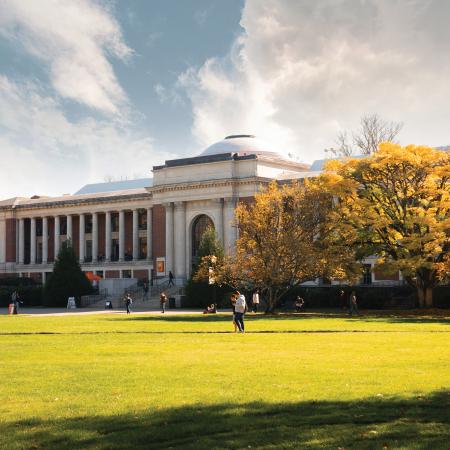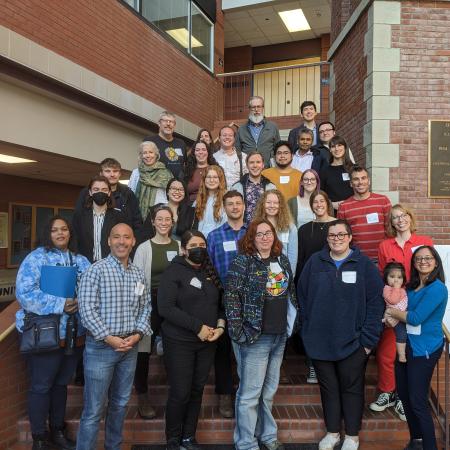The Accelerated Master’s Platform (AMP) in Mathematics allows current OSU Mathematics majors to take graduate classes in Mathematics, apply those credits to their current undergraduate degree, and transfer them to a participating graduate program. Up to twenty two graduate credits will count towards a bachelor's degree and transfer to the Mathematics Master's program. With careful planning, students could complete a master’s degree within 1 years of finishing their bachelor's degree.
Participating programs
Undergraduate
B.S. in Mathematics, and H.B.S. (Honors B.S. in Mathematics)
Graduate program
M.S. and M.A. in Mathematics
Applications and advising
All successful applicants will have completed at least the junior core courses in mathematics and have an AMP advisor who is also their research mentor; see below for GPA and other requirements. Any faculty listed as a graduate research faculty on our research pages can serve as AMP advisor.
The Chair of the Graduate Committee in Mathematics serves as AMP Coordinator. Please see our department directory.
Admission Requirements
- An OSU GPA of at least 3.25.
- Junior status in an undergraduate degree program in mathematics. (Post-baccalaureate students are ineligible.)
- Completion (by the end of Spring term) of MTH 311, MTH 312, MTH 342, MTH 343 with a grade of at least A- in each course.
- A GPA of at least 3.75 in all upper-division mathematics courses.
- Three letters of reference, including one from a graduate faculty member in Mathematics who agrees to be the AMP advisor.



